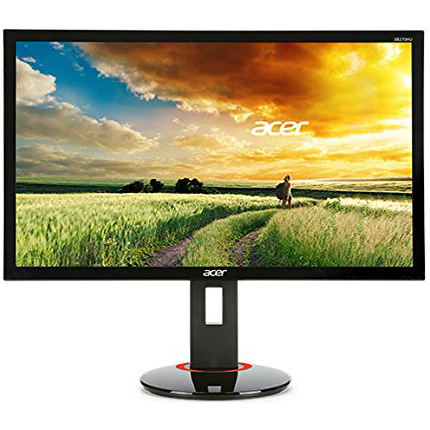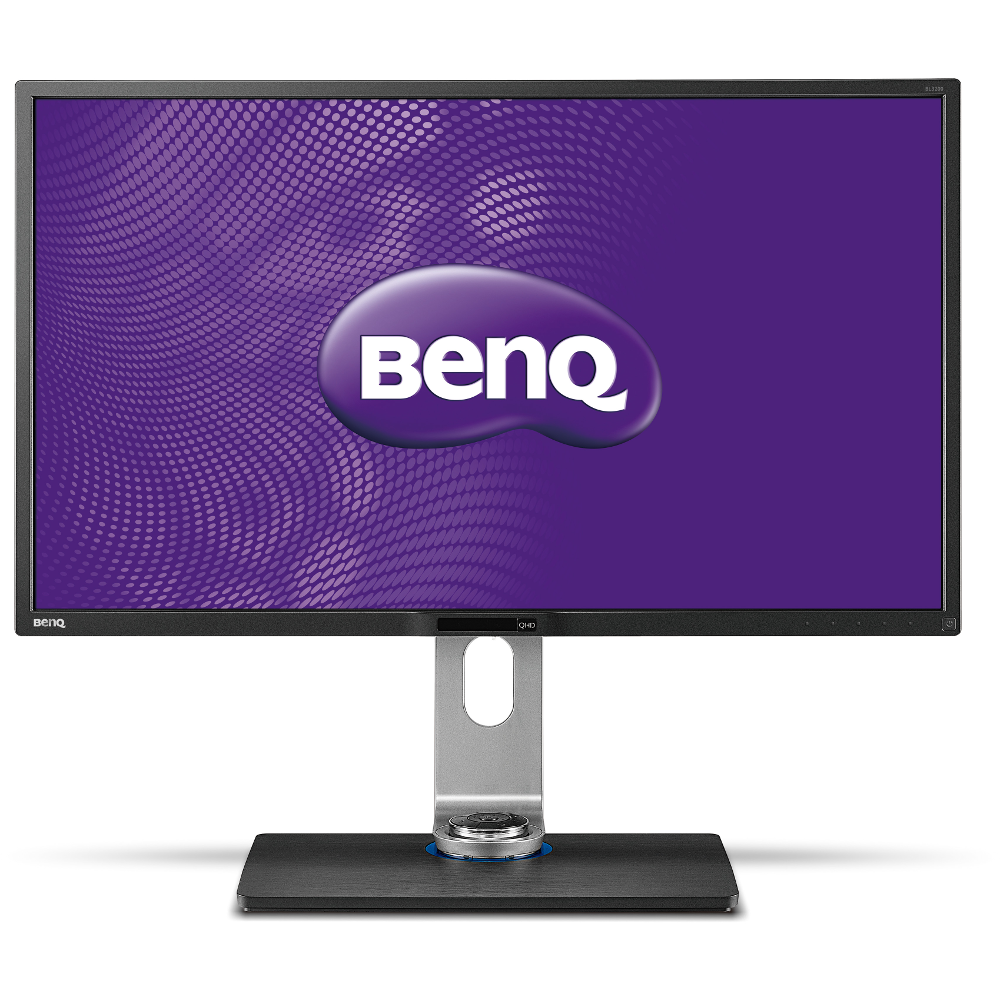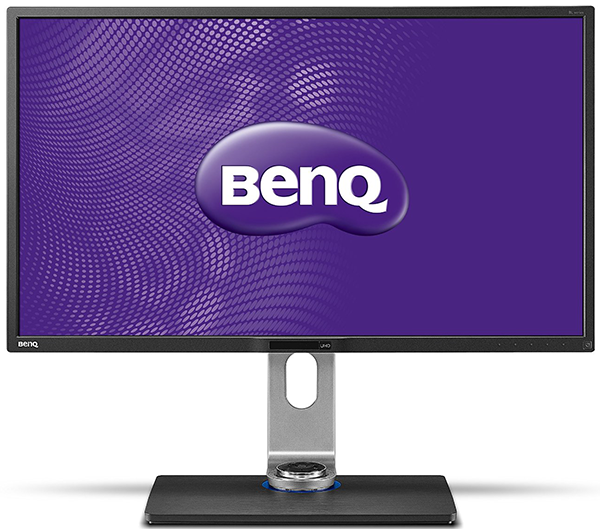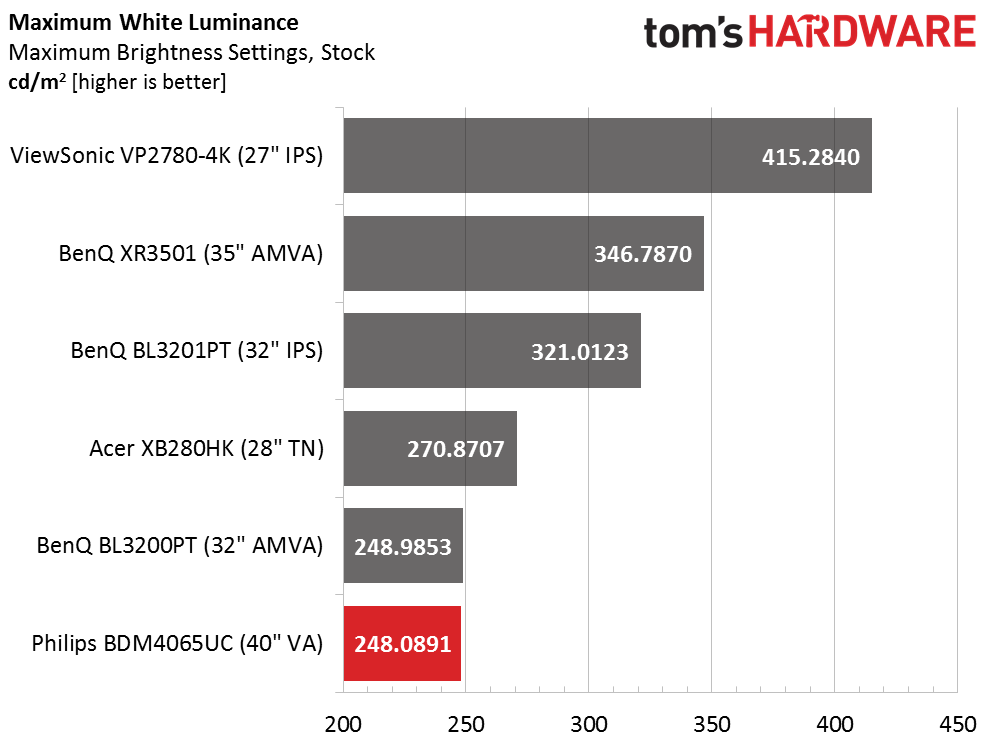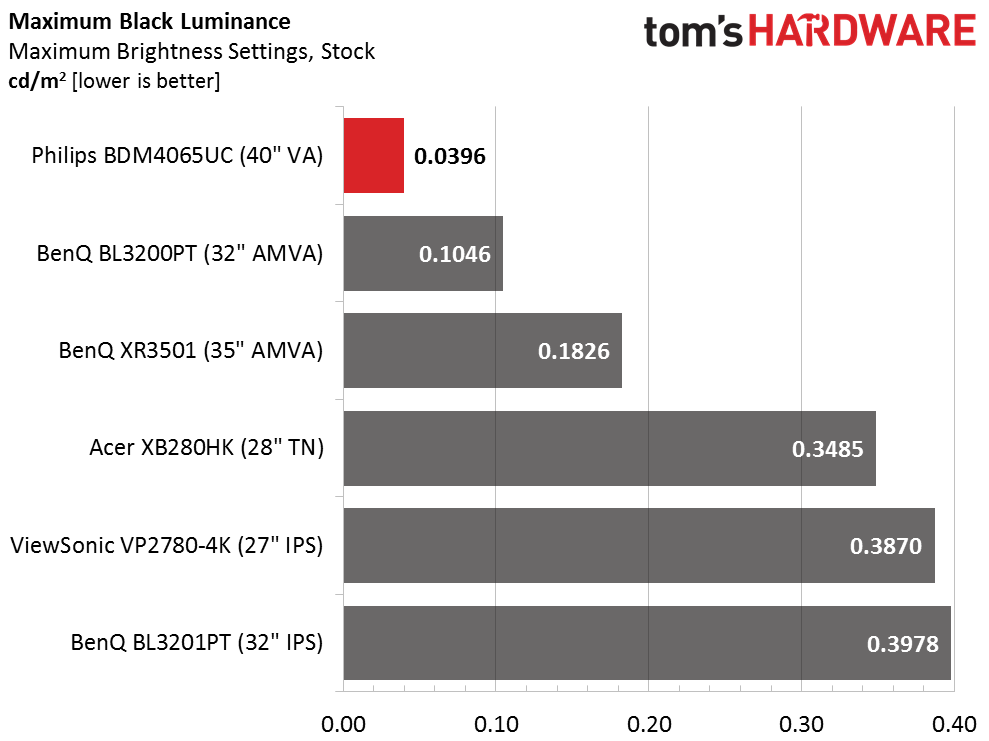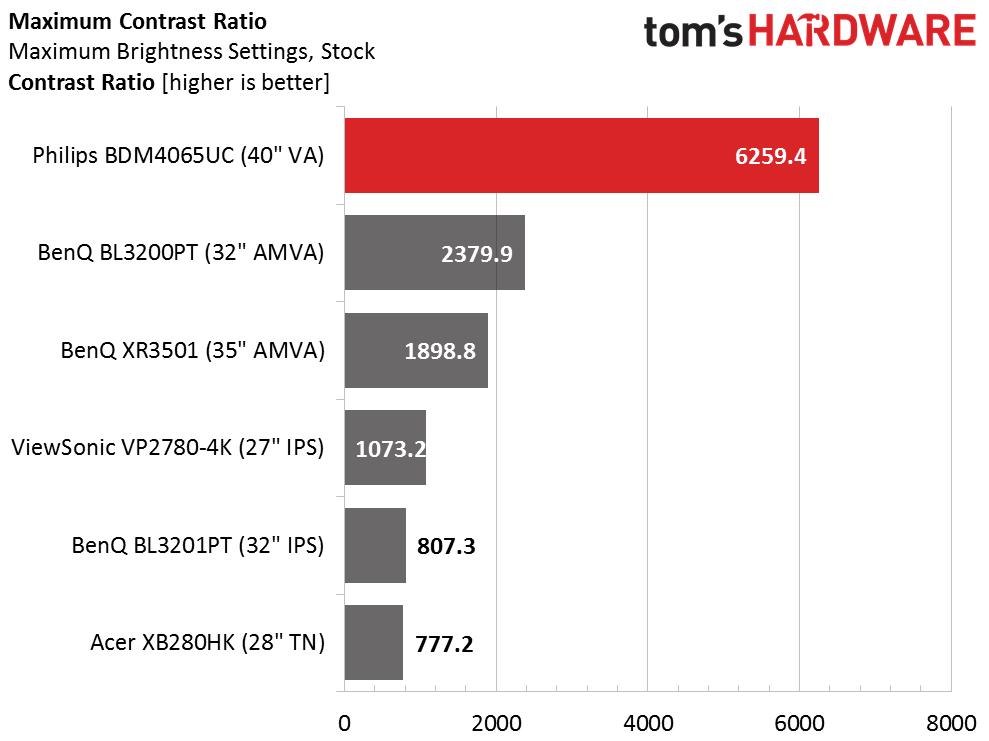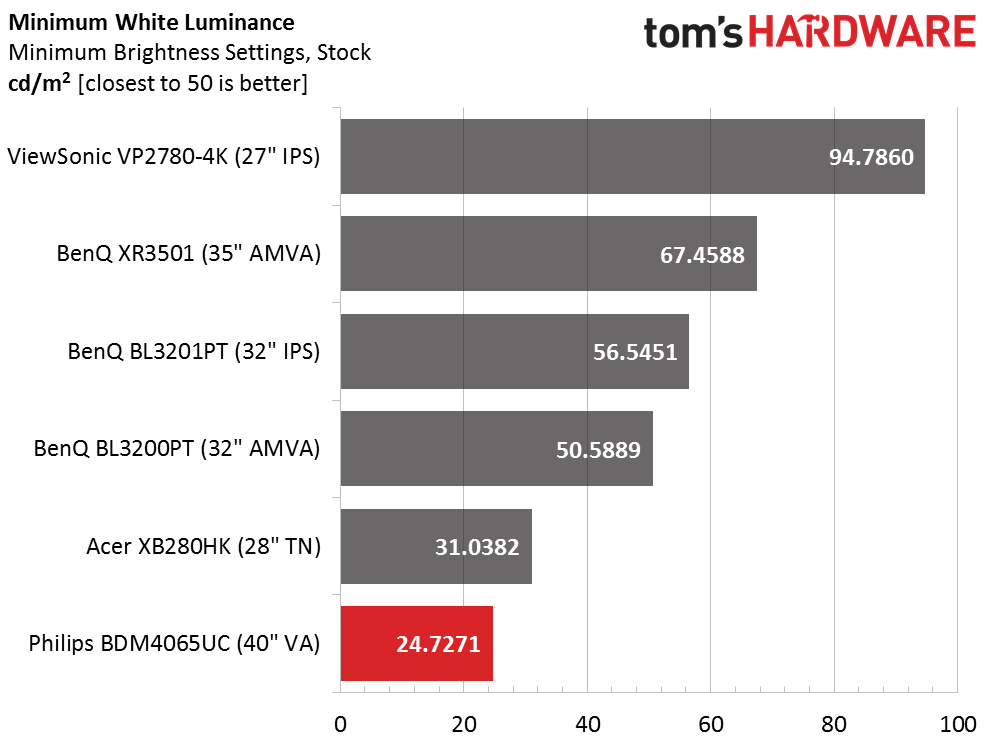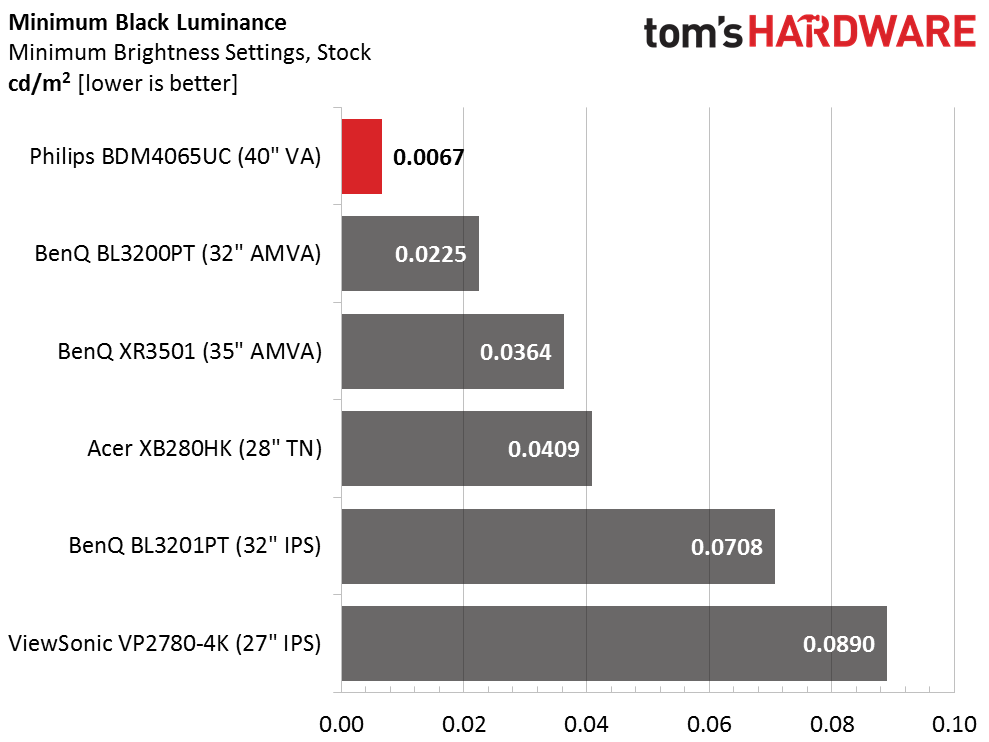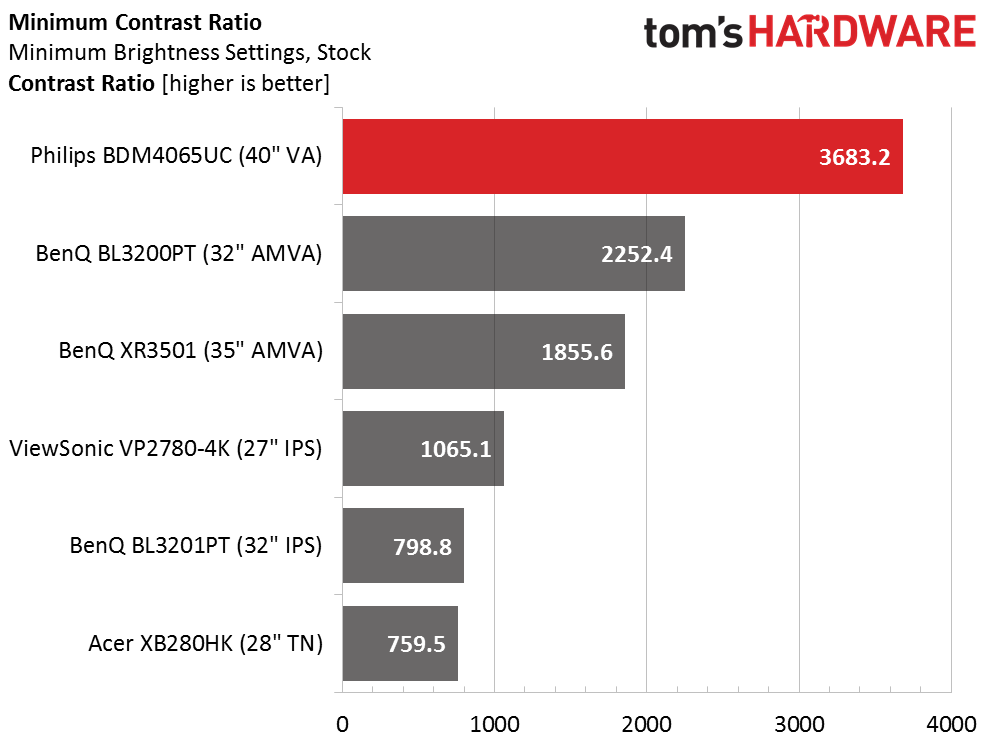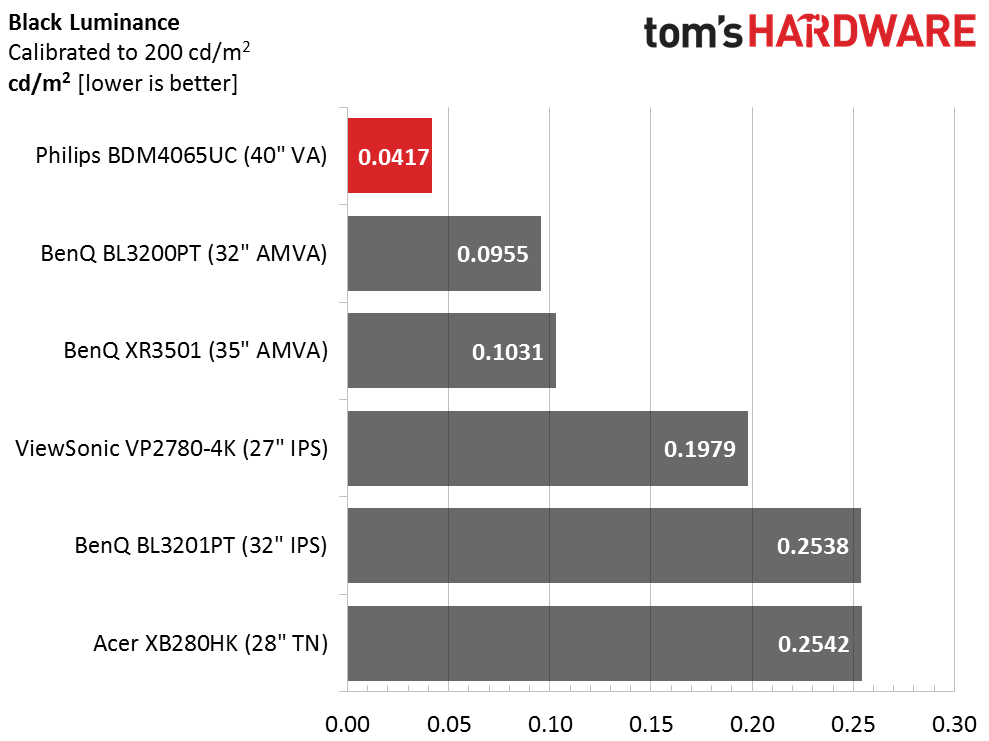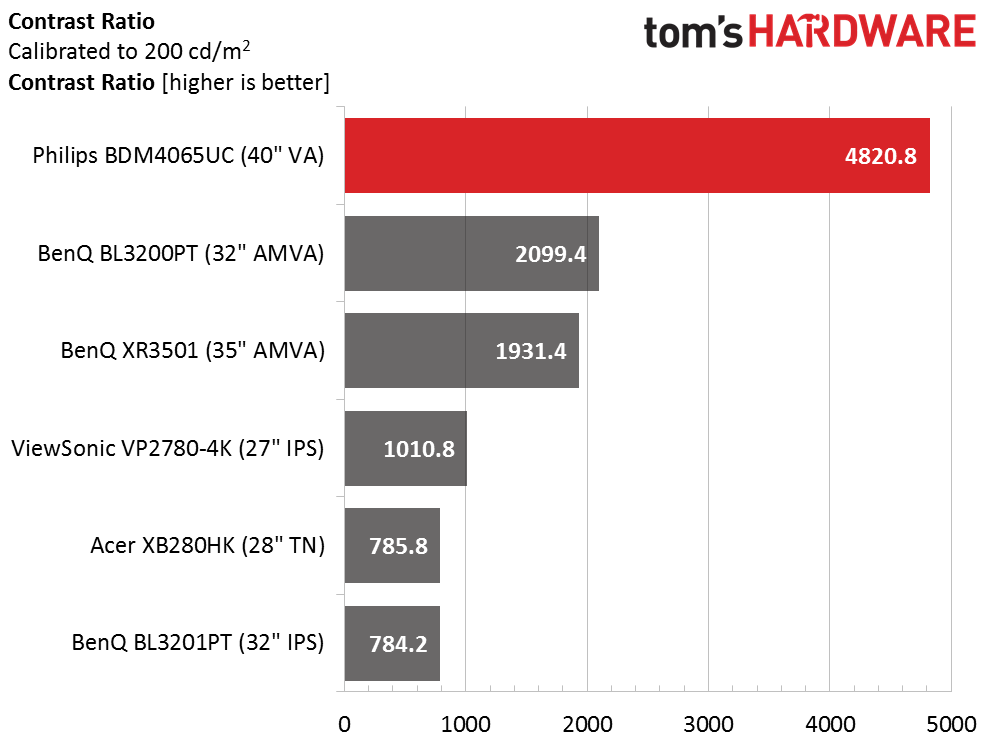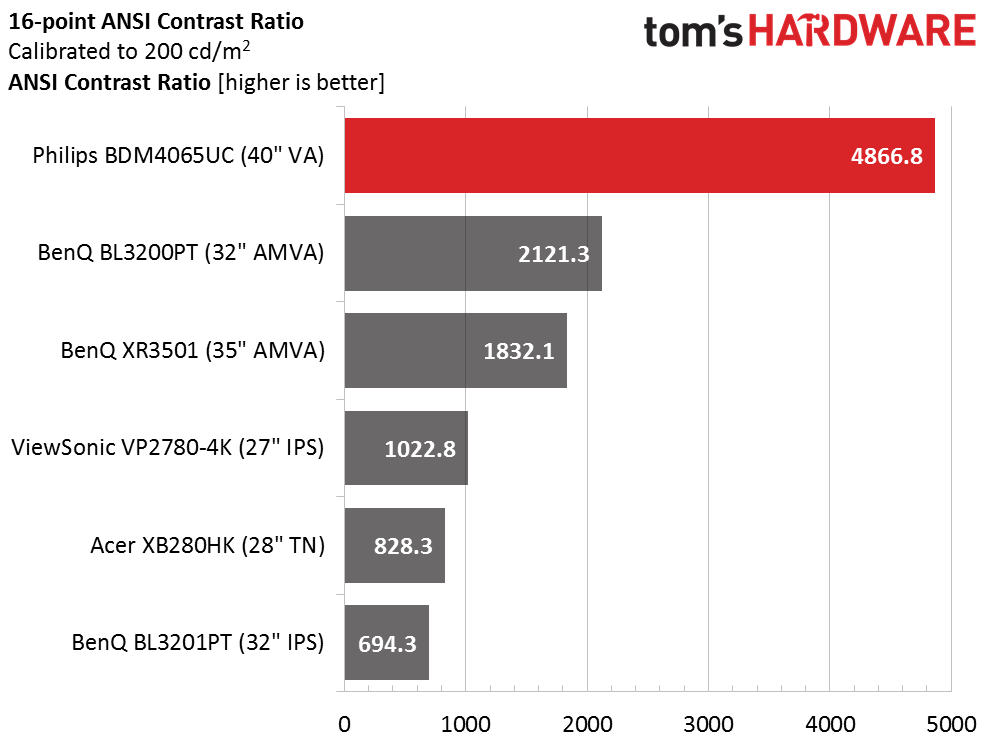Philips BDM4065UC 40-inch Ultra HD Monitor Review
Why would you put the Philips BDM4065UC on your desk? Because it's 40 inches with Ultra HD resolution and a 5000:1 contrast ratio. Today we check it out in our lab.
Why you can trust Tom's Hardware
Brightness And Contrast
To read about our monitor tests in-depth, please check out Display Testing Explained: How We Test Monitors and TVs. Brightness and Contrast testing is covered on page two.
Uncalibrated – Maximum Backlight Level
VA panels are still fairly rare on the desktop but we have two other in our database, BenQ’s XR3501 and BL3200PT. The rest of the screens are Ultra HD – ViewSonic’s VP2780-4K, BenQ’s BL3201PT and Acer’s XB280HK. All of these are suitable for gaming or productivity tasks and sell for under $1000.
Philips claims 300cd/m2 for the BDM4065UC but we could only get it to a touch over 248. It’s not the brightest display out there but it’s bright enough. Once you see how good the blacks are, output won’t be on the radar.
Many HDTVs use VA panels for their superior contrast but very few computer monitors do. It’s too bad because then more users could enjoy black levels like this. .0396cd/m2 soundly beats every screen in our database including the other two VA displays here today.
Out-of-the-box, the BDM4065 has a contrast ratio of over 6000 to 1. That’s extraordinary for any LCD much less a computer monitor. Let’s just say the image on this thing has to be seen to be believed.
Uncalibrated – Minimum Backlight Level
The backlight is quite dim when you drop the slider to zero. Even in a totally dark room, 24.7271cd/m2 is too dark for our taste. To see a more useable 50cd/m2 set brightness to 13.
Of course this results in a super-low black level. Many plasma TVs can’t get this dark. In fact it’s about the same measurement as we got from a Pioneer Kuro.
Get Tom's Hardware's best news and in-depth reviews, straight to your inbox.
Contrast is a little inconsistent as you drop the backlight. But it’s still so high, even at the minimum, that you won’t see the difference. You can set output at any level you wish and the picture will look great.
After Calibration to 200cd/m2
The calibrated black level is only slightly higher than the max value. You’d have a hard time actually telling a difference. And once again the BDM4065UC beats all comers including our other two VA examples.
This is reason enough to consider one of these monitors. It makes even the best of the rest look pale by comparison. If you can deal with its large size you’ll wonder how you ever used anything else. 4820.8:1 contrast is a record that’s likely to stand for a long time to come.
ANSI Contrast Ratio
Despite the BDM’s low price, it uses a high-quality panel part. When ANSI and on/off contrast measure this close, you know that screen uniformity is good and the grid polarizer is top-notch. This, like all our contrast results, are measured in the monitor’s native state. No dynamic contrast settings are used and the contrast control is set to prevent any clipping of detail.
Current page: Brightness And Contrast
Prev Page OSD Setup And Calibration Next Page Grayscale Tracking And Gamma Response
Christian Eberle is a Contributing Editor for Tom's Hardware US. He's a veteran reviewer of A/V equipment, specializing in monitors. Christian began his obsession with tech when he built his first PC in 1991, a 286 running DOS 3.0 at a blazing 12MHz. In 2006, he undertook training from the Imaging Science Foundation in video calibration and testing and thus started a passion for precise imaging that persists to this day. He is also a professional musician with a degree from the New England Conservatory as a classical bassoonist which he used to good effect as a performer with the West Point Army Band from 1987 to 2013. He enjoys watching movies and listening to high-end audio in his custom-built home theater and can be seen riding trails near his home on a race-ready ICE VTX recumbent trike. Christian enjoys the endless summer in Florida where he lives with his wife and Chihuahua and plays with orchestras around the state.
-
Oleander Bought one back in january. Best decision ever!Reply
A lot of bad stuff were said about it in forums (for all the wrong reasons) so it's nice to see that for what I use it (non first-person gaming and all-round) this review vindicates it.
Only remaining issue is the flicker of the backlight if brightness is not at 100%, but since the brightness is so low, it's not a problem to me. -
cats_Paw For professional use, absolutely.Reply
For gaming, probably not (Black levels are amazing for LED panel, and also contrast is amazing, but color delta and input lag... no way).
Plasmas are still king for gaming in my books, too abd they are almost all gone by now. -
Maryland_USA A completely unique product? I don't think so. Several other 40-inch monitors are available that will drive a VA panel at 3840x2160@60Hz through both DisplayPort 1.4 and HDMI 2.0. They're sold by AMH, Crossover, Iiyama, MIcroboard, and Seiki. Step up to 43 inches, and you must add Wasabi Mango. All but the Seiki and Iiyama cost less than the Philips.Reply -
Larry Litmanen I currently game on a 32 inch TV, honestly you can not go back to a monitor with a better resolution that is 24 or 27 inches. Once you go big it is just amazing.Reply
It's not just the width, you also need that vertical screen real estate.
-
hotdogee "Nearly every LCD panel on the planet is made by either Samsung, LG or AU Optronics. A few are also made by Innolux (formerly Chi Mei). But the Philips BDM4065UC is made by TP Vision, which is the actual owner of the Philips brand."Reply
The panel is made by Innolux for TP Vision. -
Eggz Great to see this. Is tom's planning on reviewing the new LG 4K OLED displays? They would seem to score very well in just about every category that matters for professional use. I'd love to see it, and the reviewers would also probably enjoy playing with one. Consider it, please.Reply -
Xorak I used a 32" 1080p TV for a long time, so I completely get the appeal of a big screen with great contrast and vibrant color, even if it's not the fastest or most accurate. Now I'm used to my MG279Q and would not go back to a fixed refresh screen. I hoped that 4096x2160 would start catching on too, but it looks like it won't. In the next 2 years a single GPU should be able to make use of a true 4k panel with variable refresh up to 75 or 90hz and it would be a thing of beauty at 30+ inches.Reply -
enewmen Can someone explain why not to use Ultra HD LEDs TV for computer work? (another dumb post) For small font text (using 1080p TVs) , the TVs did'n't look as sharp as PC monitors. But I don't see that as a problem for 2160p TVs. Yes, the TV must have HDMI 2.0 and the graphics card must also support that. But is that the only reason? Anyway, the Philips looks like an UHD TV made for PC work at a price similar to TVs.Reply
I also personally don't like Display Port cables because only the BEST cables won't give problems with recovering from sleep mode. Gave up on Display Port and currently using DVI Dual Link at 1440p. -
mavikt ReplyGreat to see this. Is tom's planning on reviewing the new LG 4K OLED displays? They would seem to score very well in just about every category that matters for professional use. I'd love to see it, and the reviewers would also probably enjoy playing with one. Consider it, please.
I too would like to see a proper technical review of said (TV) tech.
In a home theater magazine I subscribe to they said that the latency was around 50ms (55EG960V), didn't say how it was measured though. Otherwise they said it was The Perfect TV.
So it remains to be seen if LCD will "remain the dominant tech for the foreseeable future"
